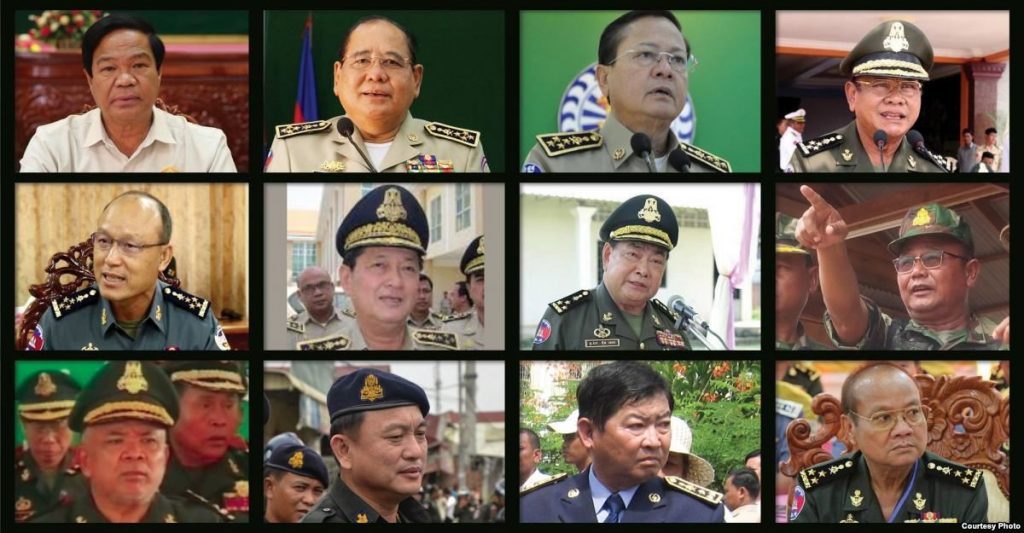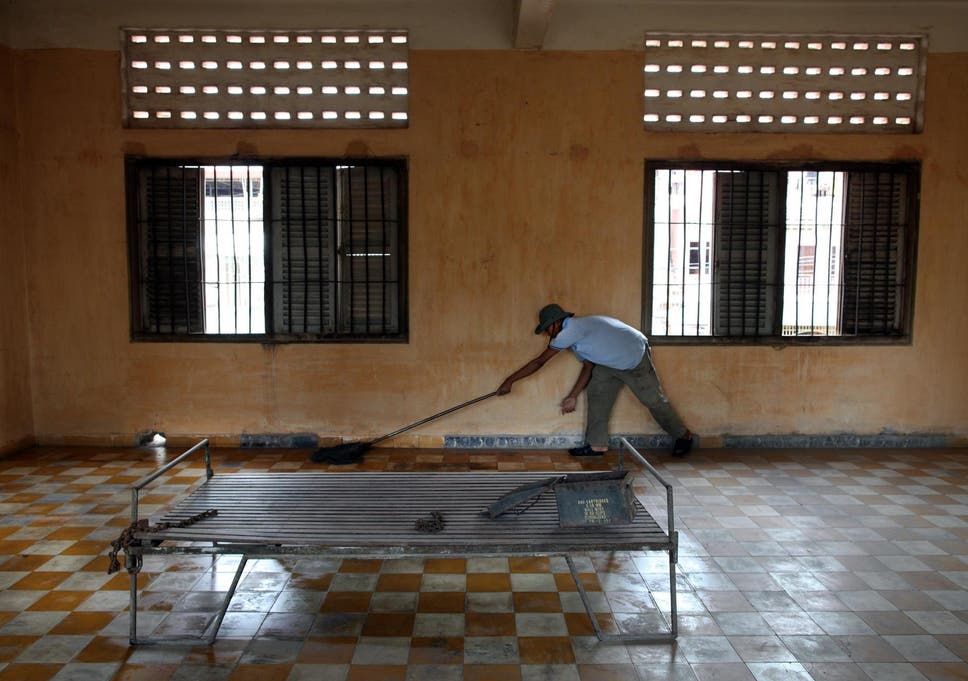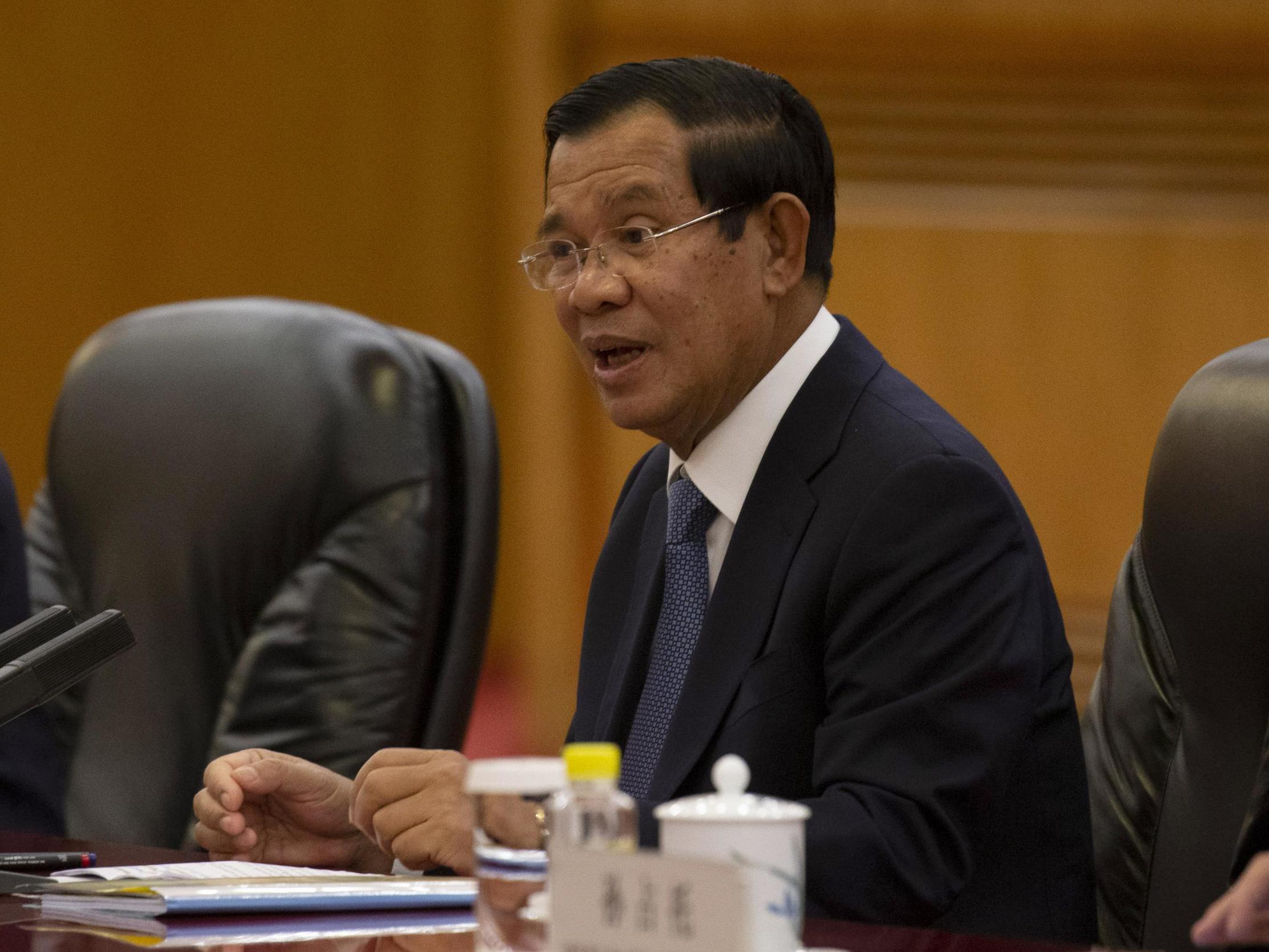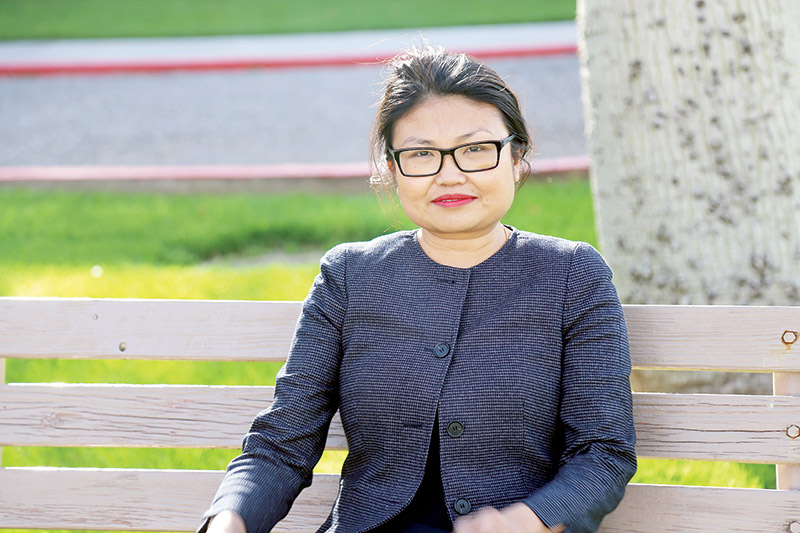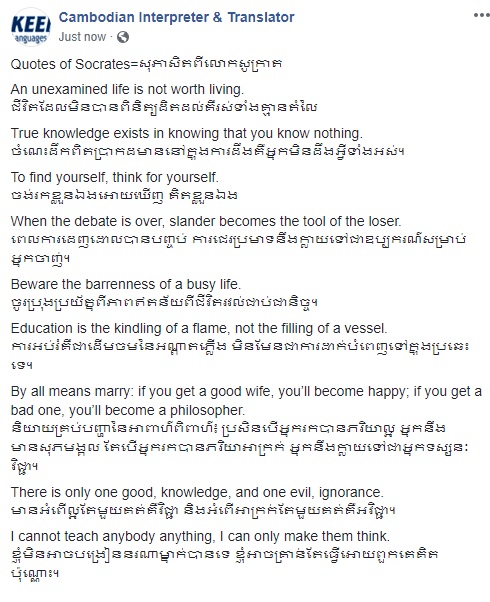
Quotes of Socrates=សុភាសិតពីលោកសូក្រាត
An unexamined life is not worth living.
ជីវិតដែលមិនបានពិនិត្យដិតដល់គឺរស់ទាំងគ្មានតំលៃ
True knowledge exists in knowing that you know nothing.
ចំណេះដឹកពិតប្រាកដមាននៅក្នុងការដឹងគឺអ្នកមិនដឹងអ្វីទាំងអស់។
To find yourself, think for yourself.
ចង់រកខ្លួនឯងអោយឃើញ គិតខ្លួនឯង
When the debate is over, slander becomes the tool of the loser.
ពេលការដេញដោលបានបញ្ចប់ ការជេរប្រមាទនឹងក្លាយទៅជាឧប្បករណ៌សម្រាប់អ្នកចាញ់។
Beware the barrenness of a busy life.
ចូរប្រុងប្រយ័ត្នពីភាពឥតន័យពីជីវិតរវល់ជាប់ជានិច្ច។
Education is the kindling of a flame, not the filling of a vessel.
ការអប់រំគឺជាដើមចមនៃអណ្តាតភ្លើង មិនមែនជាការដាក់បំពេញទៅក្នុងប្រឆេះទេ។
By all means marry: if you get a good wife, you’ll become happy; if you get a bad one, you’ll become a philosopher.
និយាយគ្រប់បញ្ហានៃអាពាហ៌ពិពាហ៌៖ ប្រសិនបើអ្នករកបានភរិយាល្អ អ្នកនឹងមានសុភមង្គល តែបើអ្នករកបានភរិយាអាក្រក់ អ្នកនឹងក្លាយទៅជាអ្នកទស្សនៈវិជ្ជា។
There is only one good, knowledge, and one evil, ignorance.
មានអំពើល្អតែមួយគត់គឺវិជ្ជា និងអំពើអាក្រក់តែមួយគត់គឺអវិជ្ជា។
I cannot teach anybody anything, I can only make them think.
ខ្ញុំមិនអាចបង្រៀននរណាម្នាក់បានទេ ខ្ញុំអាចគ្រាន់តែធ្វើអោយពួកគេគិតប៉ុណ្ណោះ។
តាមពិតសិស្សរបស់សូក្រាតគឺប្លាតូបានបកស្រាយយ៉ាងច្បាស់អំពីការចោទប្រកាន់នោះ ហើយការចោទប្រកាន់ដែលពោរពេញទៅដោយលោភៈដូចជាពួកSophistsក្រុមអ្នកនយោបាយពុករលួយច្រណែន ដោយទោសៈគឺការខឹងទៅលើពាក្យសូមទោសApologyរបស់សូក្រាតនៅចំពោះមុខតុលាការ ដែលប្រការនេះមិនមែនជាការទទួលកំហុសថាពង្វក់យុវជនអោយប្រព្រឹត្តអំពើពុករលួយទេតែជាការការពារខ្លួនself-defenceប៉ុណ្ណោះ និងមោហៈគឺការវង្វេងពីការពិតរបស់តុលាការជាពិសេសគណៈវិនិច្ឆ័យJuryដែលត្រវបានគ្របដណ្តប់ដោយអវិជ្ជាគឺជំនឿលើអាទិទេពក្រិចសម័យនោះយូរយារមកណាស់មកហើយ ផ្ទុយពីសូក្រាតដែលរមែងប្រកាន់ខ្ជាប់លើសច្ចធម៍Truthប៉ុណ្ណោះ។


